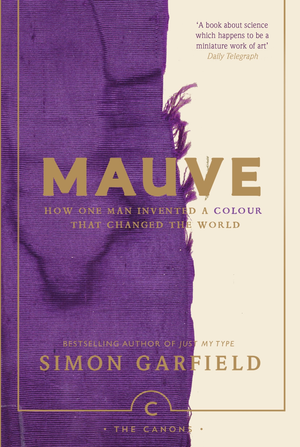

Simon Garfield suggests that complaints about the efficacy of patent offices are perennial. He investigates the uneasy collaboration between industry and science. Simon Garfield emphasizes the difficulties inherent in commercialising an invention and managing intellectual property. The colour was unique and became the most desirable shade in the fashion houses of Paris and London.The book Mauve will have a number of contemporary resonances for intellectual property lawyers and academics. Instead he created a dark oily sludge that turned silk a beautiful light purple. Working on a treatment for malaria in his London home laboratory, Perkin failed to produce artificial quinine. Simon Garfield relates how English chemist William Perkin accidentally discovered a way to mass-produce colour mauve in a factory. Instead of providing a grand historical narrative of intellectual property, he tells the story of a particular invention, and its exploitation. She concludes: "I would like to think that reading them is not simply an exercise in nostalgia, but a challenge to the present".In Mauve, Simon Garfield provides a new way of thinking and writing about the history of intellectual property. But by reversing the process, and walking through the back door of history, you don't necessarily end up at the front of the same house."Delia Falconer speculates about the reasons for the popularity of microhistories. These new books, microhistories, reverse the usual order of history, which argues from the general to the particular, in order to prove its inevitable progress.

And by the same grand logic of history, more unusual phenomena like cabinets of curiosities or glass-making or farm lore or sailors' knots are simply odd blips on its radar screen, interesting footnotes. Things like spice and buttons and clocks are generally seen to enable history on the large scale, but are not often viewed as its worthy subjects. In part, it is because we are looking at things which are generally present around us, but modestly out of sight and mind - historical nitty gritty like cod, potatoes, longitudinal clocks - which the authors have thrust suddenly, like a Biblical visitation of frogs or locusts, in our face. Delia Falconer observes of this tradition:"One has the sense, reading these books, of a surprising weight, of pleasant shock. She cites a number of recent titles in non-fiction and fiction - Longitude, Cod, Tulips, Pushkin's Button, Nathaniel's Nutmeg, Zarafa, The Surgeon of Crowthorne, The Potato, The Perfect Storm. In an essay, "The Books of Last Things", Delia Falconer discusses the emergence of a new genre in publishing - microhistories.


 0 kommentar(er)
0 kommentar(er)
